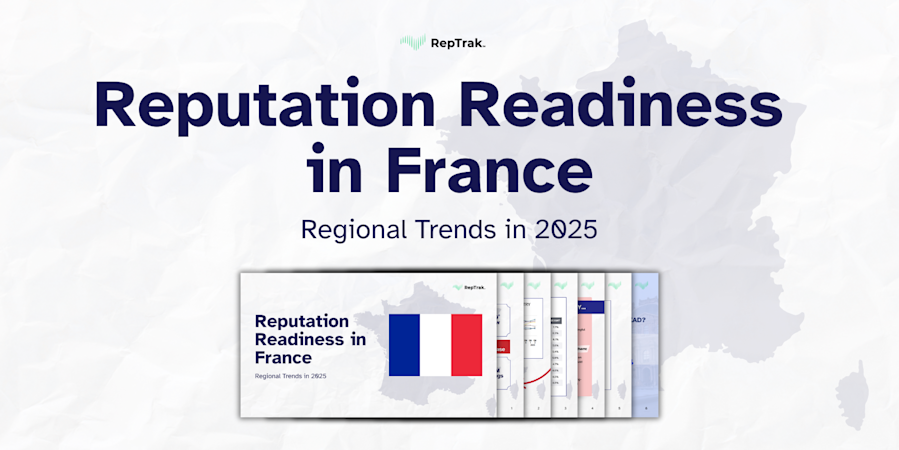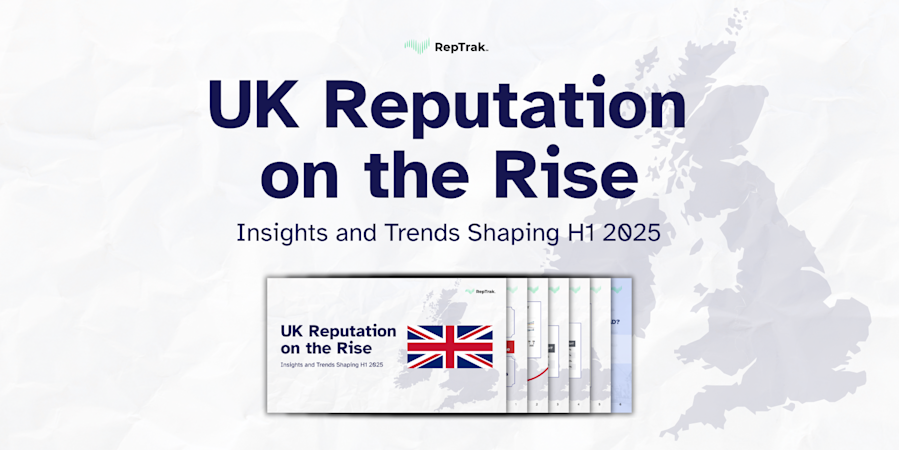Redefining Good Business With Corporate Responsibility
Blog Post26 Sep, 2019
The concept of corporate responsibility (CR) has experienced an evolutionary process. What started as a focus on the environment—carbon footprint, recycling—and philanthropy is now a balancing act of business and society, thus intrinsically tied to profitability.
In other words, corporate responsibility is no longer just a measure of goodwill, it’s a measure of being a good business. Investors and credit rating agencies increasingly rely on ESG (Environmental, Social, Governance) metrics, making corporate responsibility measures indispensable for the long term success of organizations.
Within the RepTrak Model, a lift in corporate responsibility directly impacts a company's revenue. For example, a 5-point increase in corporate responsibility…
increases purchase intent by 8.0%
increases advocacy by 7.4%
makes your company 4.7% more crisis-proof
increases trust by 6.0%
helps attract better talent with a 5.1% increase
This is why companies must be dedicated to a higher purpose that represents the greater good of society, the environment, and the company's own growth.
What can companies do to successfully deliver on corporate responsibility?
1. Build a CR-driven product. Companies that outperform in corporate responsibility have a 3.8-point higher performance in Products & Services. Products are typically the most important of the 7 drivers of reputation among the general public. This is important because besides Products & Services being a top driver of reputation globally, it is the area with which the general public interacts the most. For some best practice examples, take a look at companies like Natura and The LEGO Group, both winning with CR-driven products.
Natura partners with local Brazilian products and communities to provide the highest quality products for its customers while delivering on social and environmental needs.
LEGO, which traditionally produced plastic toys, is a leader in its industry because it took steps to leverage sustainable materials to make its products. LEGO’s commitment to making a positive impact on the world is translating into practice. The company outperforms the global top 100 companies in the CR RepTrak Study by an average of 2.3 when it comes to Governance.
2. Align CEO and corporate purpose. CEOs and companies should be aligned in their vision, mission, and corporate responsibility initiatives. Our data and insights continue to reflect that companies excelling in CR tend to have CEOs who outperform in reputation (+1.4 pts) and responsibility (+1.3 pts).
when looking at CEOs and their reputation, responsibility—acting responsibly, behaving ethically, and caring about social causes—is the most important driver of CEO reputation. It is also the only area in which we see a year-over-year increase in importance (+0.8% pts) and an area that drives CEO reputation recovery (+2.2 pts).
3. Workplace is the new frontier. Workplace is the CR dimension that has the highest increase in importance since 2018, as well as the highest increase in performance, compared with Governance, and Citizenship. Workplace is an opportunity for companies to win as it is not only is Workplace increasing in importance for companies, it is the main driver of recovery in corporate reputation. Out of the 3 CR dimensions, Workplace has a disproportionaly higher increase of >3.0-points globally. This indicates that Workplace is an area in which companies can truly excel and set themselves up for success; otherwise it can pose as a risk.
An example of a company that leads in corporate responsibility in Adidas AG. A top-20 performer in the 2019 CR RepTrak 100, Adidas has established itself as a leader in CR and an industry disruptor.
While many smaller apparel companies, like Rothy’s and Everlane are founded in sustainability, the apparel giants did not take part. But Adidas took a stand and partnered with the NGO Parley to produce shoes from ocean plastic making sustainable apparel mainstream for the big players.
Now, Adidas has pledged to only use recycled plastic (and create shoes and apparel that is recyclable) for all its products by 2024. This has paved the way for other companies like Zara that have joined the cause.
Ana Angelovksa Research Director The RepTrak Company [email protected]






